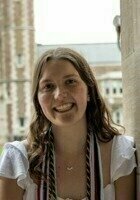Create an account to track your scores
and create your own practice tests:
All AP English Literature Resources
The Advanced Placement English Literature and Composition course is one of two classes that focus on English and provide qualified students experience with college-level English composition courses. Also called AP English Literature and Composition, this class is the equivalent of a first-year college English literature and composition course and when complete, can give students college credit for the equivalent course. Whether you need top English tutors in Orlando, English tutors in Memphis, or top English tutors in Phoenix, working with a pro may take your studies to the next level.
If you’re preparing for your AP English Literature and Composition test, there are a range of study aids that you can use to better understand the concepts and topics in the course, before you sit down to take the test. One of these is a set of AP English Literature flashcards from Varsity Tutors’ Learning Tools. They differ from traditional flashcards in that they are available online. There are more than 400 flashcards that focus on a variety of topics contained in the AP English Literature and Composition curriculum. Some of those subjects include interpreting passages, interpreting words and excerpts, and passage content.
Whether you’re looking for a study aid to help you understand the topics you’re exploring in class or just wanting to prepare for an upcoming exam, you’ll find that these are fairly easy to use. Choose a topic and click your first card – you’ll likely see a passage to analyze, or answer a question about. Some, like passages from William Shakespeare, may ask you to identify how the speaker characterizes himself. Others may ask you to determine what is being compared or contrasted within a passage. No matter the content of the flashcard, you’ll have multiple answers to choose from, and you’ll get instant feedback on whether you chose the correct answer or not. You’ll also get an explanation of why the answer is correct. These cards can be useful in reinforcing your understanding of specific topics; they may even help you strengthen your composition skills, as you gain knowledge about the various topics. Varsity Tutors offers resources like free AP English Literature Diagnostic Tests to help with your self-paced study, or you may want to consider an AP English Literature tutor.
These free online Flashcards are a great option when you want flexibility in your test review options. You can skip cards where you feel you have a grasp on the topic, you can revisit flashcards you’ve already answered, and you can even use the flashcard creator to create your own personalized flashcards, if you can’t find what you want in the pre-made Flashcard sets. The various questions contained on the AP English Literature flashcards are very similar to what you’ll see on the AP English Literature and Composition exam, but they are not the exact questions. You can sit and review a handful of cards, or hundreds of flashcards, whatever you choose, because these cards are available online, free of charge, accessible when you have an Internet connection. In addition to the AP English Literature Flashcards and AP English Literature tutoring, you may also want to consider taking some of our AP English Literature Diagnostic Tests.
If you find that you like the Learning Tools Flashcards, there are several other study aids for AP English review that can supplement your in-class work and flashcard use. Learning Tools also include an interactive syllabus, called Learn by Concept, a Question of the Day series that focuses on a single aspect of AP English Literature per day, Full-Length Practice Tests, and smaller topic-focused Practice Tests as well. All of these are available with an account through Varsity Tutors’ Learning Tools.
Our AP English Literature flashcards each contain one question that might appear on the AP English Literature exam. You can use them to get a comprehensive overview of each topic covered on the AP English Literature exam one problem at a time, or to do problem drills that focus on particular problem types or content areas found on the AP English Literature exam.
Certified Tutor




